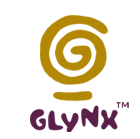Glynx, not to be confused with the recently released Ginx, is taking a peer-to-peer approach to identity management and in the process promises to help its users take back control of their online identities. After downloading the Glynx software to either a PC or a Mac, you have a Plaxo-like contact manager for online contacts, email addresses and phone numbers, except there is no central directory. Instead, Glynx has a directory it calls the “Blackpages” that exists spread out on user’s computers. You can look up specific IDs of people you know by entering their email addresses or mobile numbers, but you can’t do browse it indiscriminately (this feature is supposed to make it more difficult for spammers to exploit the directory).
Glynx allows you to import your contacts from Outlook, Skype, and Facebook. It also offers a rich presence management tool that tells you when your Glynx contacts are online and the best way to contact them at any given moment. Finally, your Glynx ID also serves as an OpenID, making it easier to maintain a single identity across the Web.
Here is how the company describes the main benefits of its software:
Without Glynx, the web sites and service providers pretty much control how your information is used. They are in a position to watch your relationships and monitor what information you are sharing, and with whom. Your e-mail and messaging is increasingly full of SPAM and attempts to defraud you or steal your online identity. And your mobile connectivity and productivity is at the mercy of your service provider
. . . With Glynx your information stays on your PC. Unless, of course, you wish to share it with someone else – in which case it gets sent directly from your PC to theirs. No middle-men. But even before you share information, Glynx lets you know who you are dealing with. And you can know what each of your contacts is up to as soon as they do.
Glynx encrypts all entries to its distributed directory, and claims that nobody controls the directory. Thus, nobody knows what is in it other than the entries they have put into it or discovered in a piecemeal fashion.
Is this what phishers and spammers have reduced us to—looking for ways to hide in our own private Internet?
